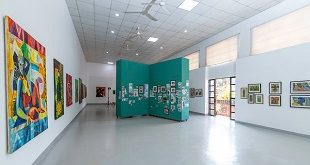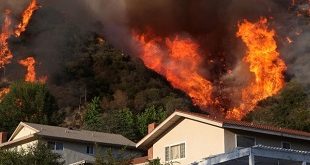
By Eric Kabera
Critics of Rwandan President Paul Kagame – including complimentary ones – unfailingly cite two flaws: that he is illegitimate because he hails from the minority; two, he is intolerant of freedom of expression. The first charge is easily disposed of. Why for example has no one found Uganda’s President Yoweri Museveni illegitimate because he is from a tiny Bahima ethnic group? What about Kenya’s former president Moi or Tanzanian President Kikwete – what’majorities do they come from?
Let us not restrict ourselves to Africa, current French President or more recently the American President'”both are sons of immigrants from the minority of minorities! The British Prime Minister is one of five million Scots and leads a robust country of over 60 million mainly English. It’s high time we abandoned superficial and simple-minded analyses and focus on substance.
Kagame is a legitimate Rwandan leader by birth, character and deeds, democratically elected by his fellow Rwandans on the basis of his vision and programme for improving their lives. Why do we in Africa continue to allow outsiders define us differently from norms of citizenship, political majority and nation-building?
On Kagame’s alleged intolerance of free speech, unqualified phrases like these have become familiar:’¦Kagame has been an authoritarian ruler for 14 years now, building his own r©sum© of human rights abuses. – Washington Post.’¦. He is intolerant of corruption and incompetence but equally as a negative side-effect of this, he is intolerant of free speech. –The Independent (Uganda).’…Although he vigorously pursues his admirers in Western democracies, he (Kagame) allows less political space and press freedom at home than Robert Mugabe does in Zimbabwe. –The Economist. Consider what Kagame faces daily from Rwandan media of over 50 privately owned independent newspapers, most publishing in Kinyarwanda.
To cite but a few examples of their headlines:’Twins? Kagame Beats Habyarimana in High-tech Dictatorship –Umuseso‘” July 2009;’Kagame in the Three Dilemmas of His Final Days Umuco – March 2008;’10 Reasons Why People Are Getting More and More Tired of Kagame’s Rule –Umuseso – September 2007;’The Slow Death of the RPF Reign'” Imprisonment of Generals and Important Businessmen –Rushyashya‘” August 2007.
These papers make no attempt to distinguish reporting and opinion and consistently break every journalistic ethics and privacy rule'” yet they are openly sold on Rwanda’s streets. How available is Kagame to media? No other head of state in the region or beyond is more accessible. Kagame’s no-holds-barred, unscripted monthly press conferences are an eagerly awaited event in Rwanda. The two to three hour meetings with all accredited local press and visiting foreign outlets are broadcast live on radio and TV often replayed in prime time.
The quality of questions asked by journalists reveals the real issue in Rwanda'” limited capacity of the local media. Nonetheless, the President listens and responds to all including the crude and ill-informed.
In comparison, President Kikwete of Tanzania holds monthly press conferences; President Museveni of Uganda occasionally goes before the press; President Kibaki of Kenya is not known to give press conferences; President Nkurunziza of Burundi meets every few months with the press where he issues statements with limited interaction.
It gets more elaborate in advanced countries'” President Bush rarely faced the press except for controlled questions. Canadian Prime Minister Stephen Harper made headlines when he refused to answer questions from journalists not on predetermined lists. Former South African President Mbeki rarely held press conferences and had a frosty relationship with the press.
What is the truth about how journalists are treated in Rwanda? The only journalists currently in prison that I know of in Rwanda are two individuals convicted for their well-known role in the genocide and one newspaper owner recently sentenced to two years for extortion in a much publicised scandal. An editor who compared Hitler and Kagame skipped town. In another incident a photojournalist from Rwanda’s only daily was roughed up by an over-enthusiastic police officer; this officer was punished.
In comparison with the region, this week a popular Congolese radio journalist was murdered in Bukavu, the third such case in three years. This very paper'” The Independent, is regularly raided by Uganda police and the editors dragged to the police station in what is now a predictable pattern. The editors of Daily Monitor, Uganda, almost went to jail last week to the outcry of many Ugandans. Kenya’s Nation and Standard have had their own difficulties with the Kenyan government and the First Family in recent years – in the name of protecting state security.
That the state of journalism is weak in Rwanda is very evident to anyone genuinely interested in Rwanda’s development. The first ever journalism and communication course in our country was offered by the National University in 1996. This is not surprising given the disastrous record in human resources development by post-independence regimes in Rwanda up to 1994′” between 1964 and 1994 the National University produced less than 2,000 undergraduates; and not a single journalist.
In a bid to professionalise the field, the Great Lakes Media Centre was set up in Kigali in 2007 to provide part-time training for practising journalists. A persisting difficulty is that most of the graduates of the journalism school abandon the field for better paying positions in public relations or communications.
Kagame’s portrayal as anti-freedom of expression and debate is rubbish. He has never been one to shy away from a good discussion, taking every opportunity to provide clarity on what he says and does. He has told journalists that’¦my job is not to fight with the media but to respond to issues raised and to challenge the media to do its job with professionalism. Kagame authors many opinion pieces in the press, and is an active debater nationally, in the region and around the world, interacting with diverse audiences, friendly as well as hostile.
In Rwanda, Kagame continues to engage with citizens and government through the constitutionally mandated annual National Dialogue, and the National Leadership Retreat where vigorous criticism of policy is undertaken to improve service delivery. He has led his government in wiring up Rwanda with optical fiber; he advocates access to internet for all Rwandans. Here is a proven African statesman and lover of debate'” why don’t observers take a closer look and present us a more accurate picture of Kagame?
The author is a film maker and founder of Rwanda Cinema.
 The Independent Uganda: You get the Truth we Pay the Price
The Independent Uganda: You get the Truth we Pay the Price


